Evergreen Health Center looks like a typical medical marijuana dispensary nestled in a strip mall. To the left, it’s flanked by a tanning salon and a pizza place; to the right, a sushi bar, hair salon, credit union, and Safeway. Inside, back issues of High Times line the coffee table. Strains with names like God, Couch Lock, and Obama Kush (“makes you feel changed”) fill the glass display case. There are pot-infused sodas, bonbons, gummy bears, cheddar cheese crackers, and Rice Krispies treats. There’s even a sample bottle of cannabis body lotion, which makes my hands feel extra smooth and tingly.
What distinguishes this Bremerton, Washington, pot shop from hundreds of others in the state’s Puget Sound region is its industrial-grade botanical oil extraction machine. A five-foot-high monstrosity of stainless steel tubes, valves, and gauges, it looks like some diabolical contraption one of Flash Gordon’s nemeses might use. Evergreen uses this extraction apparatus to distill cannabis plants into concentrates that users can ingest via vaporizer, pipe, or medible.
Malcolm Tice, an independent local processor, bought the $63,000 machine this summer from Apeks Supercritical, a small manufacturer of botanical oil extraction equipment outside Columbus, Ohio, that sells to pot growers, processers, and dispensaries. Besides providing concentrates to Washington’s scarcely regulated medical pot market, Tice hopes to obtain the license needed to sell to the state’s newly minted (and heavily regulated) recreational market next year. Evergreen’s owner, Juse Barros, who opened the dispensary June 1, thought an essential-oil extraction machine would be a great addition to the shop and agreed to let Tice park it there.
The extraction rig, which I've taken to calling “Beast,” occupies its own room toward the back of the 1,400-square-foot shop. Three bulletproof bank-teller windows — remnants from the storefront’s years as a payday loan business — let customers see Beast in action.
“It’s kind of like a restaurant with an exposed kitchen,” Tice tells me. Rather than just see the concentrates as “goo on the shelf,” patients can see where it comes from and how it’s made, a novelty to be sure. In an industry still trying to shake its black market roots, not only is this transparency rare, it's refreshing.
Bud tending
“How it’s made” is a massive undertaking. On a Saturday afternoon in August with the thermometer at 80°F, I take a 30-minute ferry ride from north Seattle to the Kitsap Peninsula, then drive another half-hour to meet Tice and Barros at Evergreen to see for myself.
When I arrive, Tice, who has short brown hair and an orange, red, and black morning glory tattooed on his right elbow, pulls out a plastic container filled with 1.1 kilograms of ground cannabis flowers and stems, which he proceeds to pour into Beast’s five-liter chamber. By the time he’s done, his black jeans are dusted green with “product.” (Euphemisms abound in this business. When I use the word “sell” to describe the transaction between Evergreen and its patients, Jason, the employee behind the counter, quickly corrects me: “We say ‘donate.’”)
Tice, whom the rest of the Evergreen team calls “the Malcolmist,” seems antsy — even anxious. He’s only been using Beast a few weeks, and he's concerned with getting the transformation from raw plant to the desired putty-like oil just right. He's a self-taught grower and processor who sees himself as cannabis artisan, much like a microbrewer.
While extraction devices can be designed to use butane, propane, or isopropyl alcohol to dissolve the plant matter into concentrates, Beast uses pressurized carbon dioxide (CO2). Tice chose this approach because it doesn't leave traces of solvents in the final product. “I really want to have the purest, most complete form of cannabis extract,” he says.
He shows me his latest extraction yield, collected earlier in the week: two cups' worth of brown ooze that looks more like motor oil than marijuana and that is ready to package into small vials for Evergreen to distribute. They’ll go for $20 to $60 a pop, depending on size.
To make the magic happen, Tice grabs his toolbox and calls over Barros to help. Armed with a ratchet and rattle gun, they get to work tightening Beast’s many oversize bolts. A vacuum pump is momentarily switched on to clear all moisture and residue from Beast. When that’s done, Barros, wearing his signature Evergreen Health Center T-shirt, grabs the lengthy instruction manual and starts running through the checklist while Tice adjusts the valves on command. “Pressurize extraction chamber by slowly opening valve 13… Open valve 6… Shut value 12… Light check…” The pressure is too great, and one of the cylinders emits some steam. The tools come out again, and Tice quickly works to loosen and then retighten Beast’s bolts.
This prepping and adjusting goes on for several minutes. “You’re dealing with insane amounts of pressure,” Tice says of the cylinders. One careless mistake, and the system could malfunction and shut itself down.
When we’re finally ready for takeoff, Tice asks that I refrain from photographing Beast’s gauges or noting specific temperatures and run times. He wants to keep his recipe proprietary. Within seconds, Beast’s pistons begin to fire. As the pressure builds, Beast makes a racket much like a train chugging uphill.
We raise our voices so we can hear each other. It’s hilarious. It’s thrilling. It’s also sort of crazy.
Mad science
Beast is the brainchild of Andy Joseph, owner of Apeks Supercritical. In a former life, Joseph spent six years running nuclear submarine reactors for the Navy and got his master’s degree in welding engineering. After returning to civilian living in 1996, Joseph worked his way up to lab director at a manufacturing technology company in Columbus, Ohio. Like any good maker, he passed the downtime tinkering in the garage. It wasn’t long before companies were hiring him to engineer stainless steel industrial equipment for them, sometimes asking him to work from verbal instructions or napkin sketches.
By 2001, Joseph had a full-fledged side business fabricating botanical extraction and distillation equipment for food, perfume, and herbal supplement manufacturers. (Think mint flavoring for ice cream, lavender for fragrances, and kava for nutraceuticals.) But a funny thing happened a few years into it. In a stunning case of right place, right time, the burgeoning legal weed industry came calling.
Larger and more established fabrication companies didn’t want potpreneurs for customers. But Joseph had no reservations. With only a handful of small competitors around the country, the playing field broke wide open for him. By the time Colorado and Washington put recreational use on their 2012 ballots, Joseph's phone was ringing off the hook.
Pot processors and dispensary owners like Tice and Barros weren’t the only ones asking for Joseph’s CO2 extractors. Doctors, patient collectives, and medical growers were, too.
“It wasn’t like some guys saying, ‘Hey, man, I want to get some medicine’ with quotes around it,” Joseph explains. These were folks legitimately trying to ease the pain and suffering of the sick and chronically ill.
He knew he’d struck gold when some of his customers let him in on their math. They were talking about making back their investment in his $18,000 to $150,000 equipment in one to two months. “The numbers people were throwing out were insane,” Joseph says. “Pay it off in so many weeks? Usually it’s pay it off in so many years.”
To keep up with demand, Joseph quit his full-time lab job last year, moved his business from the garage to a 2,500-square-foot space, and hired seven contractors. "I can't make my equipment fast enough," he says. Now, rather than building one custom extractor per client, he builds several at once and keeps $500,000 to $750,000 of inventory on hand. "We’ve gone from building Ferraris to Model T’s," he jokes.
Since upping production last year, he’s sold about three dozen machines. His most popular model? Beast.
Hip to be square
Joseph is one of the last people you’d expect to see waist-deep in the pot business. He’s not a user or an activist. He has a wife, five kids, a house in the suburbs, and friends in law enforcement. Unlike Rice and Barros, who between them have two decades of experience growing medical weed, Joseph took the “This is your brain on drugs” commercials of his youth to heart. His own kids range from three months to 11 years old. But when the time comes, he’s fully prepared explain why what Daddy does for a living is okay, and why a bunch of minors passing a pipe at a party is not.
Medical marijuana is now legal in 20 states and Washington, DC, with recreational-use laws now in the books in Colorado and Washington State. Ohio, where Joseph lives, has yet to pass a law legalizing weed. And as far as the federal government is concerned, all cultivation, sale, and possession of pot is illegal.
Joseph doesn’t consider himself a cannabis cowboy. Not handling pot directly and selling equipment that extracts the oil of any plant certainly help mitigate his legal risk. But he’s well aware that the federal government has the power to shut him down, or worse. “I think you’d be crazy to not be concerned with the legal landscape,” he explains. “I’ve got five little kids. I’m not interested in going to jail and abandoning them.”
Any pot professional looking to stay out of trouble will tell you they work with multiple attorneys, take bookkeeping very seriously, and follow state tax and licensing laws to the T. Joseph, Tice, and Barros certainly do. But unlike his plant-handling counterparts, Joseph sees the industry that put him on the map as a means to an end. His plan: to further expand into the food, vitamin, and beauty industries, where his career began.
“The medical marijuana industry is very respectable, but natural products is 50 times bigger,” Joseph says. “It’s also more established.” In other words, there’s more money to be made and there are fewer legal headaches involved.
That's not to say Joseph is hiding in the shadows. His Web site lists extracting cannabis and hemp oil concentrates for medicinal use as common applications of his extraction equipment. He markets his business at marijuana trade shows and through Google AdWords. And he’s actively meeting with pot sector investors about funding his expansion.
Not everyone making botanical extractors shares Joseph’s upfront approach. “I think if you’re going to speed, you wouldn’t want to be the car in the front,” says David McGhee, who sells butane-powered extractors.
Located in Cleburne, Texas, McGhee is well aware his state is not marijuana-friendly. His extractors start at $1,500, a price tag bound to attract more pot enthusiasts and entrepreneurs than spendier CO2 extraction equipment. He worries about shipping products that authorities might consider pot paraphernalia over state lines. For this reason, he won’t sell to customers who wear their weed-loving ways on their sleeve. And if he learns that a current client is using his equipment to make pot concentrates, he’ll cut off their customer service.
Even so, he’s sure many of his customers aren’t buying his equipment to make spices or vitamin extracts. “We couldn’t steer them away from our equipment if we wanted to,” he says of the cannabis crowd. Without them, his sales would be noticeably diminished, but it's impossible to say by how much. Customers breaking federal laws tend to use discretion.
Chemical reaction
Back in Washington at Evergreen Health Center, Tice and Barros are trying to soothe Beast. She’s been running an hour, but a barely perceptible "micro-hiss" tells them something's wrong. The culprit: a small piece of pot debris from the previous batch of concentrate that’s preventing the extraction chamber's lid from sealing.
Once Tice cleans the lid, it’s back to power tools and bolt tightening. Then Barros runs through the checklist again while Tice darts from valve to valve, readying his extraction contraption for liftoff once more.
Tice prides himself on keeping intact all the plant’s terpenes — chemicals responsible for a particular strain’s smell, flavor, and effects — throughout the extraction process. This means extracting cannabis oils at a lower temperature than most people who make pot concentrates do. Most producers turn up the heat to increase the THC, cannabis’s main psychoactive ingredient.
“I’m tired of the whole concept of higher THC meaning the product is better,” Tice tells me. He likens the ideal consumer of his oils to the wine drinker who chooses a bottle not for alcohol content, but for smell, flavor, and consistency.
“We are going for the cannabis connoisseur, someone who every time they consume it, they can they taste it, they can smell it, and they can identify it,” he says. Even so, the oils he produces boast THC levels of 45 to 65 percent, not an insignificant amount.
Barros, who’s partial to enjoying the fruits of Tice’s labor with a vaporizer, offers this review: “It’s beautiful. It’s like tasting it for the first time.”
As Beast begins her noisy ascent up extract mountain, the store’s steady stream of customers remain unfazed. Everyone’s focused on the merchandise. Tice anticipates Beast churning through this batch for many hours to come. Although he lives almost two hours away, he’ll stay late into the night to make sure everything goes smoothly, long after the rest of the Evergreen crew has gone home.
When the batch is done, he’ll prepare it for Evergreen’s shelves: dehydrating it if needed, packaging it, labeling it. Then he’ll spend two to three hours cleaning Beast so she’s ready for her next run later in the week.
The payoff, these alchemists tell me, is worth the wait.
Michelle Goodman is a freelance business journalist and author based in Seattle. She's written about potpreneurs for Entrepreneur and Seattle magazine and is now working on her third book, about crappy jobs and the people who do them. She's on Twitter as @anti9to5guide.
This article appears in the August 15, 2013, issue of The Magazine, an electronic subscription periodical with no ads that has five medium-length original features every two weeks. Visit to read and subscribe.








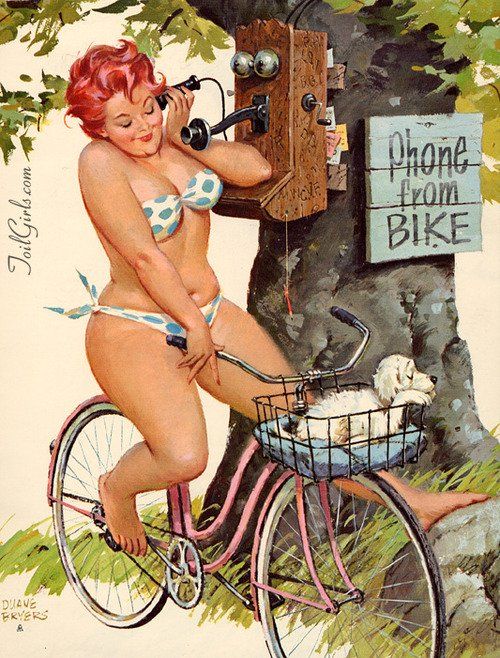
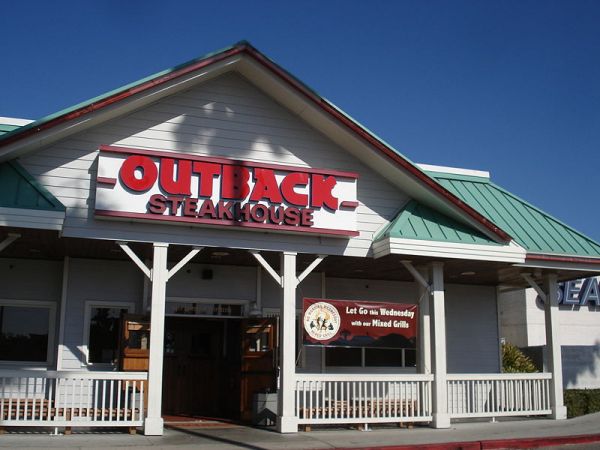 Just because something is named after a place doesn't mean it came from there.
Just because something is named after a place doesn't mean it came from there. This list was reprinted with permission from the Bathroom Institute's book Uncle John's
This list was reprinted with permission from the Bathroom Institute's book Uncle John's 








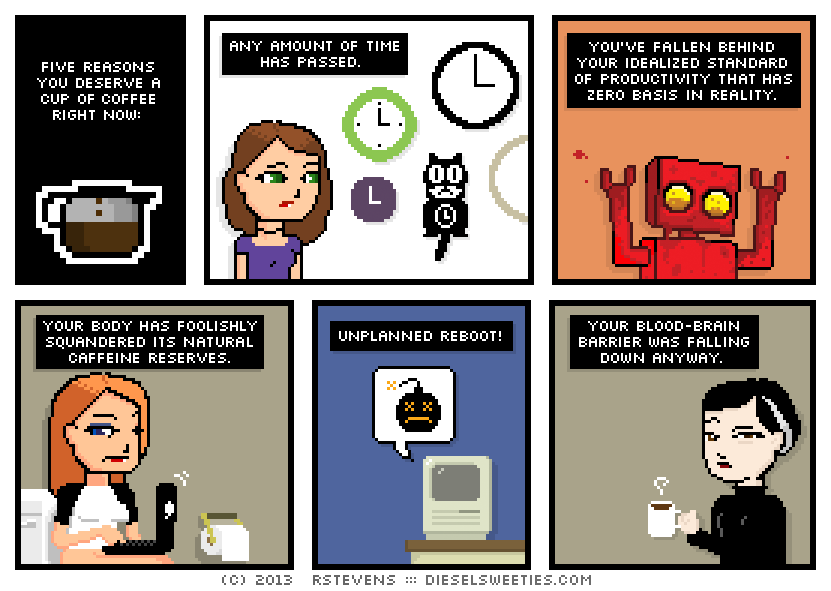








 Earlier this week, Xeni reported on the shutdown of
Earlier this week, Xeni reported on the shutdown of 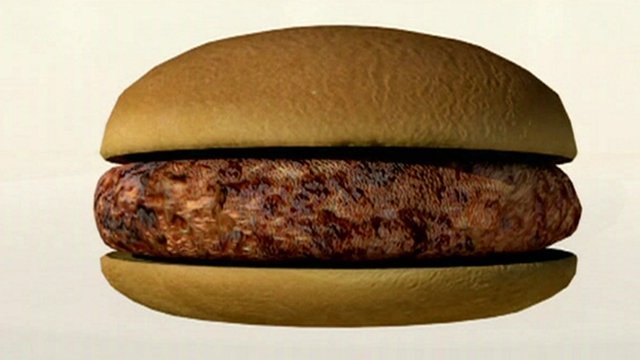











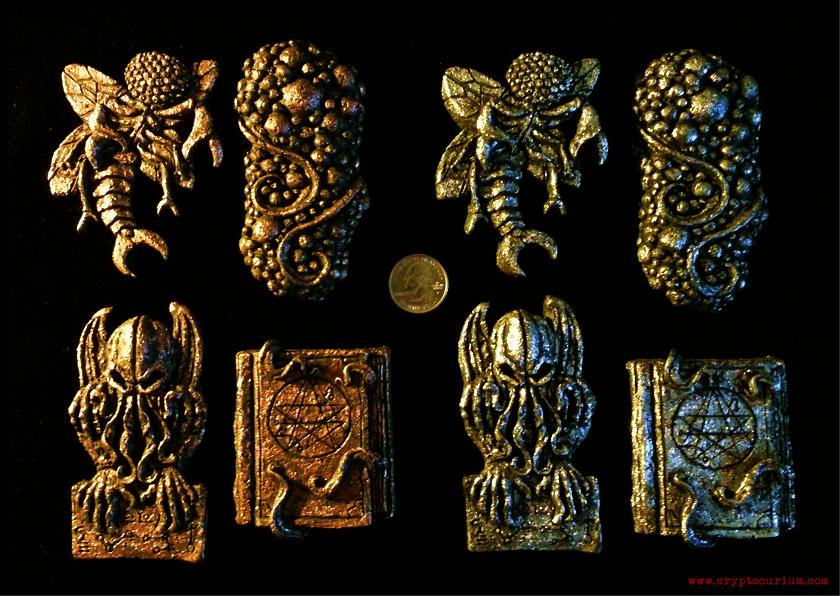 Jason McKittrick is selling a set of "Mythos Magnets" based on the Cthulhu stories, with bronze or silver finish. There's only 100 sets in the run, and they're $25 for a set of four.
Jason McKittrick is selling a set of "Mythos Magnets" based on the Cthulhu stories, with bronze or silver finish. There's only 100 sets in the run, and they're $25 for a set of four. 
 A team from Oxford University has launched a $75,000 Kickstarter to go into production on a point-and-shoot 3D scanner called Fuel3D that will retail for about $1000 (though there are a limited number of $750 beta-run devices). The scanner uses a calibrated pair of cameras and some on-board software to produce 3D images suitable for post-processing, animation and 3D printing. The team started off developing this for medical imaging, and has some experience in this sort of manufacturing, but as with all Kickstarters, there are no guarantees that you'll ever get anything if you stump up for a pre-order -- caveat emptor.
A team from Oxford University has launched a $75,000 Kickstarter to go into production on a point-and-shoot 3D scanner called Fuel3D that will retail for about $1000 (though there are a limited number of $750 beta-run devices). The scanner uses a calibrated pair of cameras and some on-board software to produce 3D images suitable for post-processing, animation and 3D printing. The team started off developing this for medical imaging, and has some experience in this sort of manufacturing, but as with all Kickstarters, there are no guarantees that you'll ever get anything if you stump up for a pre-order -- caveat emptor. 

 facebook
facebook  reddit
reddit 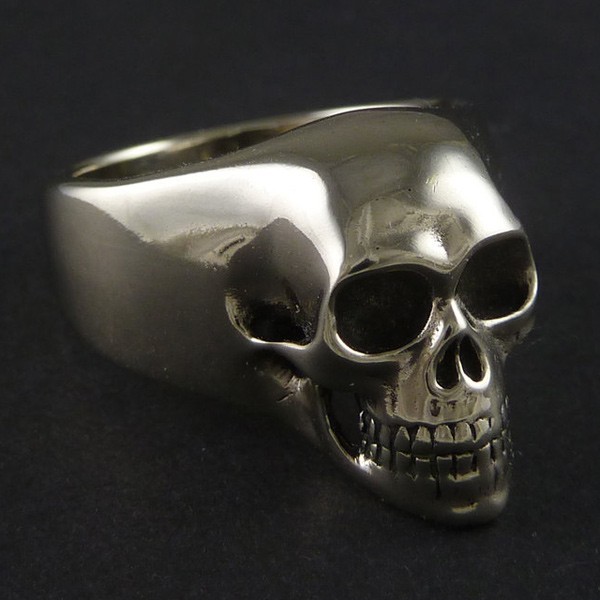 I'm always looking for an elegant skull ring and this handcrafted silver-bronze handcrafted specimen from Lost Apostle is a beaut. "Look closely and you'll see each tooth is carved, the jaw bone tucked away behind the zygomatic arch and the nasal bones all beautifully detailed. Even the back of the jaw and teeth are carved, as is the roof of the mouth, showing the palatine bone and nasal aperture." It's $65 from our pals at ShanaLogic. "
I'm always looking for an elegant skull ring and this handcrafted silver-bronze handcrafted specimen from Lost Apostle is a beaut. "Look closely and you'll see each tooth is carved, the jaw bone tucked away behind the zygomatic arch and the nasal bones all beautifully detailed. Even the back of the jaw and teeth are carved, as is the roof of the mouth, showing the palatine bone and nasal aperture." It's $65 from our pals at ShanaLogic. "